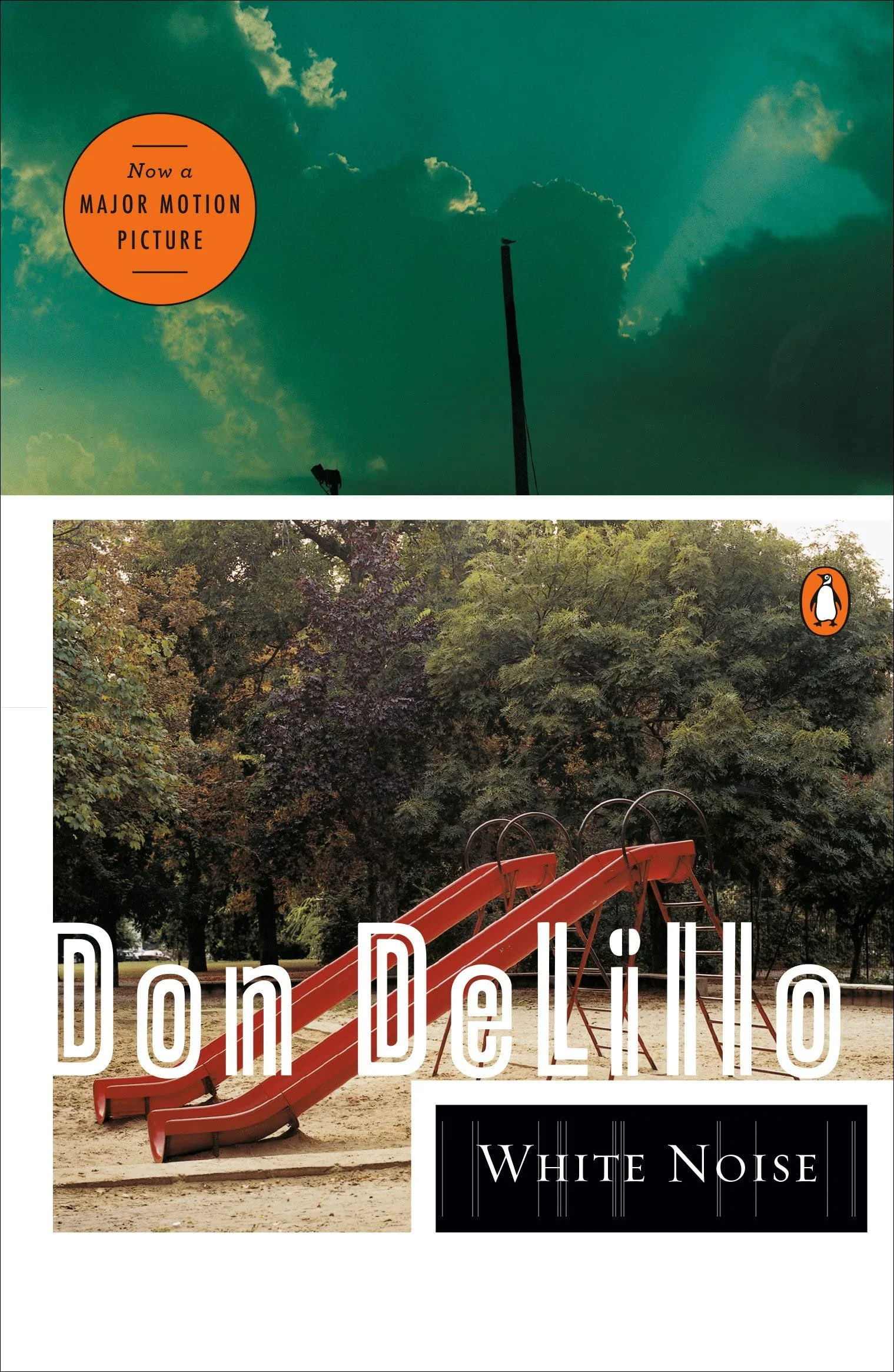Order FALLING MAN here
(also reviewed)
Order WHITE NOISE here
It was not a street anymore but a world, a time and space of falling ash and near night.
One can hardly fathom what it's like to be Don DeLillo. You're well in your seventies and you're about the most legit, successful writer in American letters. You have already conquered the heard of several thousand readers with works of epic ambition such as WHITE NOISE, MAO II, LIBRA and UNDERWORLD. You have won several awards and your new publications are literary events in themselves. So what is there left to do? Write novels like FALLING MAN, things inspired by the world he is currently soaking in. It was my third crack at DeLillo, after the underwhelming RUNNING DOG and the manic and byzantine WHITE NOISE, which I really loved. I had the same reaction than most people to reading FALLING MAN: is it possible to make a compelling, literary novel about the events of 9/11?
FALLING MAN comes out of the gates roaring. A man is walking out of the ruins of one of the towers, in a street darkened by ashes and debris. He is confused, shell shocked and is trying to wrap his mind around what the hell just happened. That man is Keith, a lawyer who used to work in the now destroyed World Trade Center. Prior to the events, he was recently trying to put the pieces of his wedding back together with his wife Lianne, but the specter of the towers complicates everything. Keith has an affair with a woman named Florence Givens, who's briefcase he saved from the disaster. Presumably because they share a proximity to the devastation that they don't feel anybody else can understand. There are angry Arabic people evolving in periphery of the Keith/Lianne plot, but I won't elaborate on them because their pertinence in FALLING MAN is dubious at best.
Maybe I am stunted by my own limited understanding of narrative arts, here. To my knowledge, the motor of a novel is change. Transformation, if you will. In genre novels, it's traumatic events that lead more often than not, to a loss of innocence. I'm aware that it's a lot more subtle in literary fiction. But entropy being what it is, people change and the past can never be lived again. That makes people melancholic a lot, ask Jay Gatsby. It's evident that a change operates within Keith and his family during the first fifty pages of FALLING MAN. That's cool and I got nothing against these fifty pages. They are Don DeLillo at his finest. But passed that, the novel falls into a bizarre trance and doesn't seem to know where to go. There are a series of vignettes about people who are shell shocked about 9/11 and they are shell shocked for a long time. FALLING MAN explores the impossibility to overcome trauma and the integration of this trauma to everyday life. It's just that the sequence of transforming events happens within the first third of the novel and then...cliché as it may sounds in a book review...nothing much happens.
"It still looks like an accident, the first one. Even from this distance, way outside the thing, how many days later, I'm standing here thinking it's an accident."
"Because it has to be."
"It has to be," he said.
"The way the camera sort of show surprise."
"But only the first one."
"Only the first," she said.
"The second plane, by the time the second plane appears," he said, "we're all a little older and wiser."
I don't want to give you the impression I hated that book. I sort of liked it? On an aesthetic level, I mean. There are very little people who are still breathing, who are as qualified as Don DeLillo to find poetry in things. By "thing" I don't mean it as a general statement, but as in "objects". No other author I can think of can pack so much meaning and tension in descriptions. His portrayal of chaotic Manhattan, buzzing around Keith is gripping and masterful. The scenes where Lianne leads a workshop for early stages Alzheimer patients have an awkward beauty to them. The austere simplicity of his dialogue carries weight too. I don't have much to complain about the form. FALLING MAN is beautifully written and that alone makes it enjoyable. It's the content that hurts. It's not outrageous or anything, but it runs thin passed page 100 (and I'm being generous here).
Could Don DeLillo have made FALLING MAN more alive? It's presumptuous to even ask the question, but I had ideas. The character of the falling man is used as a symbol throughout the novel. He is just seen by the various protagonists, who are either enthralled or outraged by his performances. Including him into the narrative, without necessarily subjecting him to an All-American witch hunt (which might very well have happened if he was a real person) would have made sense to me. But it's easy to discuss ideas like that. Most people who sat down to try and write something longer than a thousand words know that it's another ball game to make it a reality. Maybe DeLillo tried that, I don't know. What I know is that FALLING MAN is a demonstration of his amazing talent rather than an a very pertinent novel on 9/11 and I doubt that he wanted that.
THREE STARS


